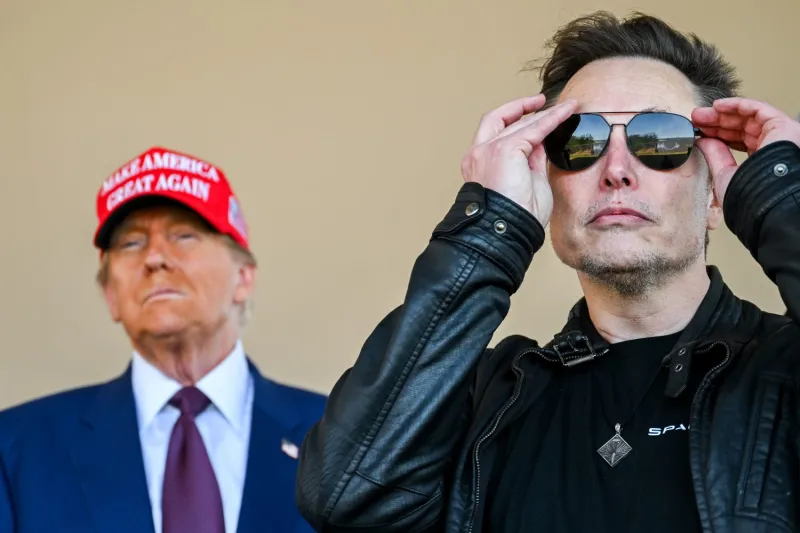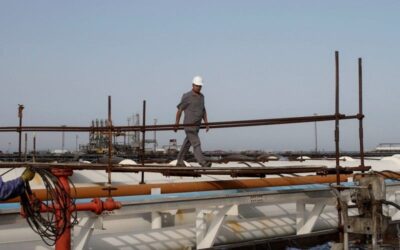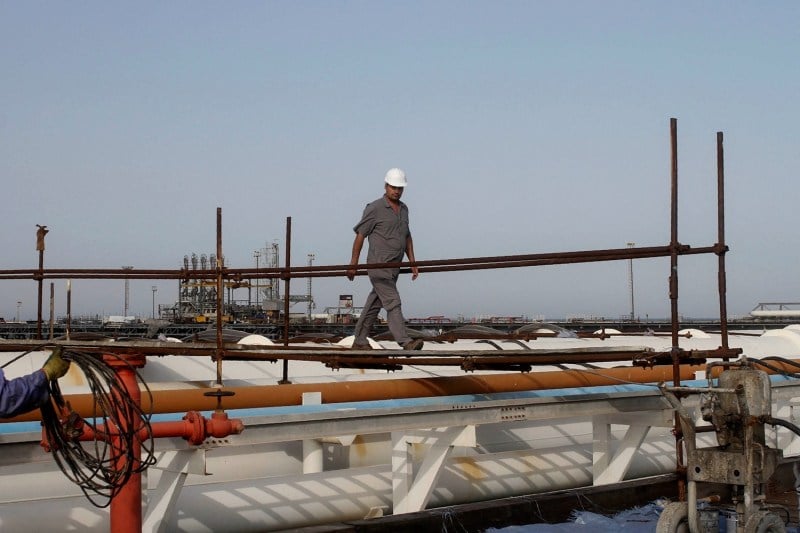Elon Musk Is a Security Risk

Elon Musk Is a Security Risk
The billionaire’s access to sensitive information should have been a giant flashing red light for any administration.
U.S. President-elect Donald Trump and Elon Musk watch the launch of a test flight of the Starship rocket at SpaceX in Brownsville, Texas, on Nov. 19, 2024. Brandon Bell/Getty Images
The feud between U.S. President Donald Trump and Elon Musk didn’t come as a total surprise. There were always those who doubted that the two mega-narcissists could co-exist for long in the same White House. On June 11, Musk issued a statement expressing regret for some of his social media posts about Trump, but one is inclined to doubt that his mea culpa will patch things up.
The spat between the two billionaires, however, has diverted the public’s attention from a more urgent matter. Two stories that appeared this week should draw fresh attention to a problem that should have been obvious to everyone from the very beginning of the Tesla CEO’s disastrous adventure at the head of the so-called Department of Government Efficiency (DOGE). Musk is not only the richest man in the world. He is also the biggest risk to the security of the government of the United States—which, in a government riddled with walking security risks, is saying something.
The feud between U.S. President Donald Trump and Elon Musk didn’t come as a total surprise. There were always those who doubted that the two mega-narcissists could co-exist for long in the same White House. On June 11, Musk issued a statement expressing regret for some of his social media posts about Trump, but one is inclined to doubt that his mea culpa will patch things up.
The spat between the two billionaires, however, has diverted the public’s attention from a more urgent matter. Two stories that appeared this week should draw fresh attention to a problem that should have been obvious to everyone from the very beginning of the Tesla CEO’s disastrous adventure at the head of the so-called Department of Government Efficiency (DOGE). Musk is not only the richest man in the world. He is also the biggest risk to the security of the government of the United States—which, in a government riddled with walking security risks, is saying something.
On June 7, the Washington Post reported that DOGE personnel had ignored the concerns of White House cybersecurity staff by installing a Starlink terminal on the roof of an adjacent building in February. Starlink, you might recall, connects to the satellite network owned and operated by Musk’s SpaceX company. The White House Starlink connection enabled those who used it to bypass the security restrictions usually imposed on staffers working in the building. The Post’s sources told the newspaper that “those managing the systems weren’t able to monitor such connections to stop sensitive information from leaving the complex or hackers from breaking in.”
Three days later, the Wall Street Journal released another bombshell, reporting that the Department of Homeland Security and the Justice Department had “tracked foreign nationals coming and going to Elon Musk’s properties” in 2022 and 2023. The monitoring of Musk’s questionable ties started before the Trump administration, the paper noted, and “highlights concerns about the number of foreign nationals in Musk’s orbit.”
Of course, visits by “foreign nationals” are not inherently something to be worried about. But the fact that both agencies saw fit to do this tracking suggests that they had specific concerns—which may not be surprising, given the extreme sensitivity of Musk’s work for the U.S. government.
What foreign nationals might they have in mind? Russians, perhaps. (The Journal story contains a vague reference to people from “Eastern Europe” among Musk’s visitors.) We learned last fall that Musk had been in regular phone contact with Russian President Vladimir Putin staring in late 2022. During their conversations Putin is said to have asked Musk, among other things, to refrain from activating Starlink over Taiwan, which a Russian intelligence source said was done as a favor to Putin’s buddy, Chinese President Xi Jinping. Coincidence or not, the Taiwanese still don’t have Starlink service today.
Did Putin also thank the influential billionaire for his extensive use of X to insult and belittle Ukrainian President Volodymyr Zelensky—and for supporting Russian military operations by not allowing the Ukrainians Starlink access over Crimea, a part of Ukraine? (To be fair, Musk has largely maintained Starlink service for the Ukrainian military, which has proved to be a vital asset in Kyiv’s fight against the Russians.) We don’t know the details of these conversations. But what we do know would almost be the best case; the possibilities are so much worse.
Why Musk would do this remains an open question. But the far more alarming question is why this is only now beginning to catch media and government attention. Musk’s regular private contact with the head of a hostile autocracy should, in its own right, have activated a gigantic flashing red light for any U.S. administration. For Musk is not just an average U.S. citizen; he is a man with a high-level security clearance tied to a range of business interests involving NASA and the intelligence community.
NASA, of course, is now uncomfortably dependent on SpaceX’s rockets—as Musk himself noted during his feud with Trump, when the CEO threatened to decommission the Dragon spacecraft, a mainstay of travel to the International Space Station. Musk took back the threat three hours later. But the space station link is far from the only source of concern. In March 2024, it was revealed that SpaceX has been building a spy satellite network for the U.S. National Reconnaissance Office, a highly secret agency that conducts surveillance from space. Musk is doing the work under a $1.8 billion contract from 2021 with terms that remain classified.
China is another justified source of anxiety. Musk’s electric car company has huge exposure to the Chinese Communist Party. Musk has famously described himself—unusually for a MAGA loyalist and Trump campaigner—as “kind of pro-China.” In 2020, Tesla opened a factory in Shanghai, where the company now produces half of its cars; Tesla also manufactures a large share of its batteries at a facility in China. Permits for both factories were issued with remarkable speed, and the company has benefited hugely from favorable loans from Chinese banks, evidence of a cozy relationship with the government.
Musk certainly has a high enough profile to have held multiple meetings with Xi as well as Premier Li Qiang. To be sure, other U.S. business leaders have done the same. But few of them boast Musk’s top-secret clearance—or, now, anything like his access to sensitive government information through DOGE.
Musk has shown that he knows what’s expected of him in return. He has lavished obsequious praise on China. He has stated that “there’s a certain inevitability” for Beijing to absorb Taiwan, which he has referred to as “an integral part” of China. China is a key building block of Musk’s business empire—and given that a political decision in Beijing could crush his operations in a second, this makes him profoundly susceptible to potential pressure by the Chinese Communist Party. How far would he be willing to go to protect his interests?
This, then, is the man to whom the Trump administration gave comprehensive and unfettered access to the personal data of tens of millions of Americans during DOGE’s rampage in the first months of this year. Musk’s “takeover of federal government infrastructure,” as Wired magazine called it, gave inexperienced young software programmers access to a wide variety of sensitive information, including records from the Office of Personnel Management (OPM). Few Americans understand the significance of the OPM, which holds vast amounts of data about citizens, but the Chinese considered it important enough to target it in one of the biggest cyberattacks in history in 2015. Two DOGE staffers even tried to gain access to the networks that contain classified material about the United States’ nuclear weapons—which raises serious questions about why Musk’s people would need such information for a budget-cutting exercise.
Indeed, DOGE’s work has been characterized by a stunningly cavalier attitude to data security, prompting some experts to speak in Foreign Policy about the “the most consequential security breach” in the U.S. government’s history. The initiative has operated with minimal transparency and oversight. It has violated countless strictures on the confidentiality of federal employee information. The chaos and uncertainty sown by its firing of thousands of federal workers could potentially offer openings to foreign intelligence services, which will be keen to capitalize on the grievances of discarded employees. And granting DOGE staffers access to the government’s internal payments system has risked compromising intelligence operations that rely on the same mechanism. We will probably need years to fully understand the extent of the damage.
Government concern about Musk is not entirely new. In December, the New York Times reported that Musk and SpaceX “have repeatedly failed to comply with federal reporting protocols aimed at protecting state secrets, including by not providing some details of his [Musk’s] meetings with foreign leaders.” The Pentagon’s inspector general opened a review of Musk’s security clearance last year, as did the Air Force and the undersecretary of defense for intelligence and security. Nothing seems to have come of any these investigations, but I somehow don’t find that reassuring. I wonder if it’s just a coincidence that Trump fired Pentagon Inspector General Robert Storch in January, a few weeks after the publication of the Times report.
Recently, even before his fight with Musk, Trump seems to have had second thoughts about the carte blanche he has granted him. It was Trump who apparently canceled Musk’s access to a planned top-secret Pentagon briefing in April. Now, as the feud between the two men simmers, Steve Bannon, Trump’s longtime consigliere, has called on the president to pull Musk’s security clearance.
I never thought I would ever agree with Bannon on anything. But here we are.
This post is part of FP’s ongoing coverage of the Trump administration. Follow along here.
Christian Caryl is the former Moscow bureau chief for Newsweek and U.S. News & World Report. He has reported from more than 60 countries and is the author of Strange Rebels: 1979 and the Birth of the 21st Century. X: @ccaryl
Stories Readers Liked
In Case You Missed It
A selection of paywall-free articles

Four Explanatory Models for Trump’s Chaos
It’s clear that the second Trump administration is aiming for change—not inertia—in U.S. foreign policy.





















Join the Conversation
Commenting is a benefit of a Foreign Policy subscription.
Subscribe
Subscribe
Already a subscriber?
.
View Comments
Join the Conversation
Join the conversation on this and other recent Foreign Policy articles when you subscribe now.
Subscribe
Subscribe
Not your account?
View Comments
Join the Conversation
Please follow our comment guidelines, stay on topic, and be civil, courteous, and respectful of others’ beliefs.
View Comments
Change your username |
Log out
Change your username:
CANCEL
Confirm your username to get started.
The default username below has been generated using the first name and last initial on your FP subscriber account. Usernames may be updated at any time and must not contain inappropriate or offensive language.